★★★½
“What the title says.”
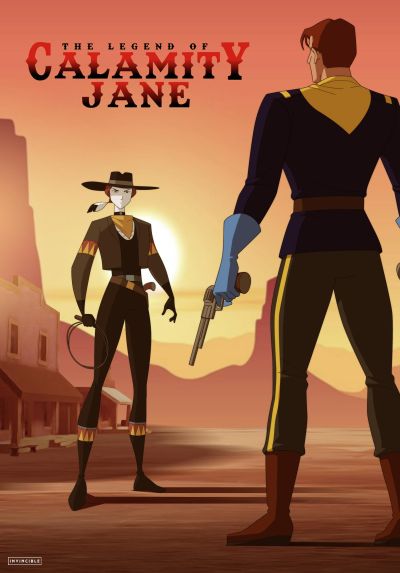 Martha Jane Cannary Burke, a.k.a. “Calamity Jane” (1852-1903) was a lot of things. But most of all she was the inventor of her own legend. By the end of the 19th century, dime novels based off her alleged adventures already sold very well. Unfortunately, the foul-mouthed and constantly drunk former frontier woman could never benefit financially from her reputation, with which others earned good money. She died early, though already perceived as a legend of the “old West”. To divide which of the many stories told about her are true, and which are not, is a job for the historians, not mine. For a character who definitely provided a “fill in the gaps” hero’s template, it’s no surprise Calamity Jane soon became a mythic legend of the “Wild West”, combined with other illustrious characters of that time such as “Wild Bill” Hickok, Wyatt Earp, Doc Holliday, Billy the Kid and many others.
Martha Jane Cannary Burke, a.k.a. “Calamity Jane” (1852-1903) was a lot of things. But most of all she was the inventor of her own legend. By the end of the 19th century, dime novels based off her alleged adventures already sold very well. Unfortunately, the foul-mouthed and constantly drunk former frontier woman could never benefit financially from her reputation, with which others earned good money. She died early, though already perceived as a legend of the “old West”. To divide which of the many stories told about her are true, and which are not, is a job for the historians, not mine. For a character who definitely provided a “fill in the gaps” hero’s template, it’s no surprise Calamity Jane soon became a mythic legend of the “Wild West”, combined with other illustrious characters of that time such as “Wild Bill” Hickok, Wyatt Earp, Doc Holliday, Billy the Kid and many others.
On the big screen, she has been portrayed by Jane Russell (The Paleface), Jean Arthur in The Plainsman, Doris Day in the beloved musical Calamity Jane, Angelica Huston (Buffalo Girls) and Ellen Barkin in Wild Bill (next to Jeff Bridges). On the small screen she could be seen, amongst others, in an episode of Bonanza, played by Stephanie Powers, and 3 seasons of Deadwood where Robin Weigert played a more modern and realistic version of her. As the Calamity Jane character is so prominent, and separate from the real person she once was, in a way similar to Robin Hood, the Musketeers, or Matthias Kohlhaas in Europe, it seemed only a matter of time until she would also find her way into an animated version of herself, which this series presents.
The Legend of Calamity Jane was a short-lived animated show that came out in 1997, a co-production of French TV channel Canal+ and The WB in America. The intent was to create something similar to the successful animated Batman show. Originally scheduled for 13 episodes, after just three weeks, the series vanished from the TV guides. While obviously not successful enough in the US, the full series ran as a dubbed version in several other countries. Over time, maybe partly due to not being available, the show developed a cult following.
Originally, Jennifer Jason Leigh was chosen to play Calamity, but for unknown reasons was replaced by Barbara Scarf, who does a good and satisfying job. Though remembering the roles Leigh played, and her subsequent role as an evil criminal in Tarantino’s western The Hateful Eight, one wonders how her Calamity Jane would have sounded. But then Calamity is a true blue hero here, so maybe Leigh wouldn’t really have fit this version of the character.
 The show itself takes place around 1876 and is great fun. Calamity Jane is an adult, red-haired and green-eyed woman, with a whip that regularly comes in handy for dangerous situations. She is serious-minded and on the side of the law, meaning whenever help is needed, she will be there. She has a horse called Dakota and drinks milk (hey, what do you expect – it’s made for kids!). Always on her side is old Joe Presto (Welker) who can best be described as her comic sidekick, though sometimes comes across a bit simple-minded. Also, I sometimes had problems understanding his mumbling, though you get used to it. Of course, when you tell the story of Calamity Jane, Wild Bill Hickok is never far away. In real life she claimed that they were a couple in Deadwood. though according to historians, this could easily be another made-up story, as she was famous for doing. In this show, he helps her from time to time and is voiced by Clancy Brown (the Kurgan from Highlander).
The show itself takes place around 1876 and is great fun. Calamity Jane is an adult, red-haired and green-eyed woman, with a whip that regularly comes in handy for dangerous situations. She is serious-minded and on the side of the law, meaning whenever help is needed, she will be there. She has a horse called Dakota and drinks milk (hey, what do you expect – it’s made for kids!). Always on her side is old Joe Presto (Welker) who can best be described as her comic sidekick, though sometimes comes across a bit simple-minded. Also, I sometimes had problems understanding his mumbling, though you get used to it. Of course, when you tell the story of Calamity Jane, Wild Bill Hickok is never far away. In real life she claimed that they were a couple in Deadwood. though according to historians, this could easily be another made-up story, as she was famous for doing. In this show, he helps her from time to time and is voiced by Clancy Brown (the Kurgan from Highlander).
The stories are one-offs, concluding at the end of each week, and Calamity usually has to deal with villains or other problems. For example, in the first episode, she prevents a war between the Comanches and the army; in another one she brokers peace between a racist settler and the Blackfoot tribe. Some villains can be quite nasty, although I don’t recall her killing any of them. But others are less confrontational. In one story, she meets her long-lost father, and in another, she has to deal with a young girl who has run away from home, and wants to become like her.
Overall, the stories are entertaining and different enough, so they never fall into a pattern or get boring. Of course, what I liked especially was action scenes which were above what you might expect from a show at the end of the 90s. There really was no reason why the show failed to find an audience in the US. It definitely could have stood alongside Batman, and I personally think there would have been a place for both, as each were their own thing. Fortunately, the series has now been made available on DVD and Blu-Ray. Here’s hoping Calamity will find many new fans.
Dir: Pascal Morelli
Star (voice): Barbara Scaff, Frank Welker, Clancy Brown, Michael Horse





 It is pretty close to an article of faith that no movie starring Yukari Oshima and Cynthia Khan can ever be entirely worthless. This film, however, shakes that belief to its very foundation. Not least because despite the cover and credits, found just about everywhere (including here), it barely stars them – indeed, Khan doesn’t even show up for the finale, with absolutely no explanation provided. This is included here, mostly as a warning, and because I’m a stickler for completeness with regard to their filmographies. Though in this case, I suspect, I’m less a stickler and more the sucker.
It is pretty close to an article of faith that no movie starring Yukari Oshima and Cynthia Khan can ever be entirely worthless. This film, however, shakes that belief to its very foundation. Not least because despite the cover and credits, found just about everywhere (including here), it barely stars them – indeed, Khan doesn’t even show up for the finale, with absolutely no explanation provided. This is included here, mostly as a warning, and because I’m a stickler for completeness with regard to their filmographies. Though in this case, I suspect, I’m less a stickler and more the sucker.

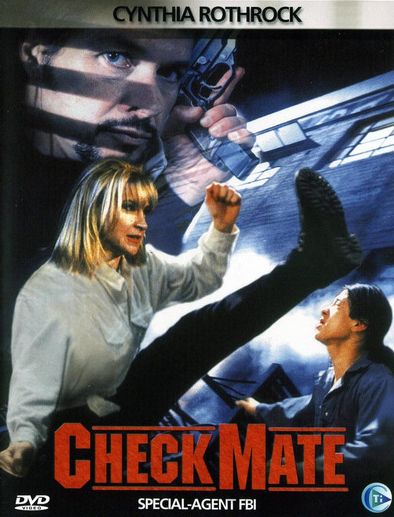
 If ever I become an evil overlord, I will ensure my minions’ idea of security does not involve walking slowly in the open, towards an attacker, while firing wide of them from a range no greater than a slightly oversize dinner-table. That’s the first thing we take from this, which begins with a thoroughly implausible scene where Rei (Ono, who had been a part of 90’s J-pop group CoCo) manages to drown her target, a German industrialist, despite him being roughly twice her size, and without anyone in or around the swimming-pool noticing anything. She then climbs out, pulling a gun from who knows where, kills bodyguards who’d fail the Imperial Stormtrooper accuracy exam, and abseils down the side of the building to escape. That sets the tone for much of what follows, combining a reunion with someone from her past, a blossoming relationship with a chef, and her boss’s traditional surly reluctance to allow anything as banal as “personal happiness” to distract his #1 killer from her work.
If ever I become an evil overlord, I will ensure my minions’ idea of security does not involve walking slowly in the open, towards an attacker, while firing wide of them from a range no greater than a slightly oversize dinner-table. That’s the first thing we take from this, which begins with a thoroughly implausible scene where Rei (Ono, who had been a part of 90’s J-pop group CoCo) manages to drown her target, a German industrialist, despite him being roughly twice her size, and without anyone in or around the swimming-pool noticing anything. She then climbs out, pulling a gun from who knows where, kills bodyguards who’d fail the Imperial Stormtrooper accuracy exam, and abseils down the side of the building to escape. That sets the tone for much of what follows, combining a reunion with someone from her past, a blossoming relationship with a chef, and her boss’s traditional surly reluctance to allow anything as banal as “personal happiness” to distract his #1 killer from her work. After the genuinely impressive bleakness of Assassin Lovers, the series comes crashing back to earth with a splat like a rotten tomato for this entry, which fizzles out early on, and then manages to lumber on for another 45 minutes. Rei (Tachihara) spends her time between missions hanging out at a gay bar, and rescues one of the rent boys, Mitsusu (Kitagawa), who ply their trade there after a vicious assault – accompanied, it has to be said, by the least appropriate music in the history of cinematic homosexual rape. He ends up moving in with her, to the latest in a series of unfurnished apartments provided by Section Zero, and the two damaged individuals start creating a life, of sorts, for themselves. However, there’s a serial killer, apparently with a deep hatred of men, operating in the area, and Rei is given the mission of tracking down and eliminating the psycho.
After the genuinely impressive bleakness of Assassin Lovers, the series comes crashing back to earth with a splat like a rotten tomato for this entry, which fizzles out early on, and then manages to lumber on for another 45 minutes. Rei (Tachihara) spends her time between missions hanging out at a gay bar, and rescues one of the rent boys, Mitsusu (Kitagawa), who ply their trade there after a vicious assault – accompanied, it has to be said, by the least appropriate music in the history of cinematic homosexual rape. He ends up moving in with her, to the latest in a series of unfurnished apartments provided by Section Zero, and the two damaged individuals start creating a life, of sorts, for themselves. However, there’s a serial killer, apparently with a deep hatred of men, operating in the area, and Rei is given the mission of tracking down and eliminating the psycho.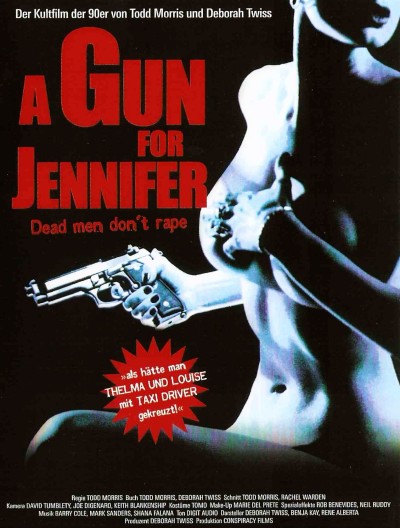 The back-story behind how this was made is, in some ways, more interesting than the film itself. The star and co-writer was working as a stripper, and came up with the idea, almost as a coping mechanism to handle some of the creeps with whom she had to interact. Funding came from a customer at one of the clubs. But, unfortunately, it turned out that the money he was “investing” was actually being embezzled, leading to a two-year crawl through post-production – it still hasn’t received an official release in its American home. Made in 1997, it looks like a fossil from an earlier, much scuzzier era, with both its grimy New York locations and feel harking back to the work of Abel Ferrara.
The back-story behind how this was made is, in some ways, more interesting than the film itself. The star and co-writer was working as a stripper, and came up with the idea, almost as a coping mechanism to handle some of the creeps with whom she had to interact. Funding came from a customer at one of the clubs. But, unfortunately, it turned out that the money he was “investing” was actually being embezzled, leading to a two-year crawl through post-production – it still hasn’t received an official release in its American home. Made in 1997, it looks like a fossil from an earlier, much scuzzier era, with both its grimy New York locations and feel harking back to the work of Abel Ferrara.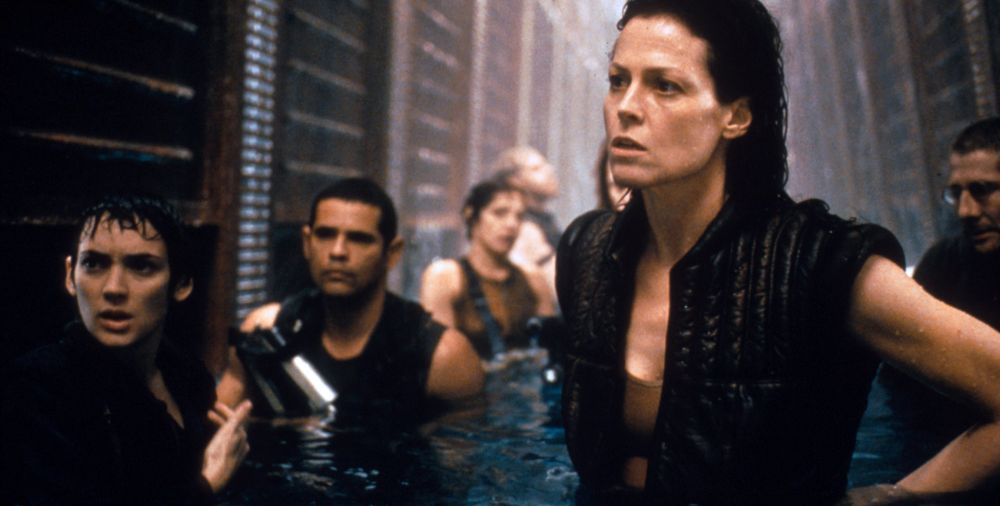 ★★★½
★★★½ But the central idea is the one of Ripley now being something more than human, and Weaver has a great deal of fun with that, playing as if she’s half a beat ahead of everyone else, and completes her transition by no longer being scared of the aliens. It’s them who need to be scared of her, and again, I’m reminded of Milla Jovovich in the RE series: more than human, and yet, less than human at the same time. There’s even a creature with the proportions the other way round – monster with a touch of human – like Nemesis from RE: Apocalypse, and it was no surprise to read that Paul W.S. Anderson was one of the many directors considered for this (Danny Boyle, Peter Jackson, Bryan Singer and David Croneberg beinh among the others). I briefly drifted off to speculate on the possibility of an Alien vs. Resident Evil cross-over; would probably have been a lot more fun than anything involving Predators.
But the central idea is the one of Ripley now being something more than human, and Weaver has a great deal of fun with that, playing as if she’s half a beat ahead of everyone else, and completes her transition by no longer being scared of the aliens. It’s them who need to be scared of her, and again, I’m reminded of Milla Jovovich in the RE series: more than human, and yet, less than human at the same time. There’s even a creature with the proportions the other way round – monster with a touch of human – like Nemesis from RE: Apocalypse, and it was no surprise to read that Paul W.S. Anderson was one of the many directors considered for this (Danny Boyle, Peter Jackson, Bryan Singer and David Croneberg beinh among the others). I briefly drifted off to speculate on the possibility of an Alien vs. Resident Evil cross-over; would probably have been a lot more fun than anything involving Predators.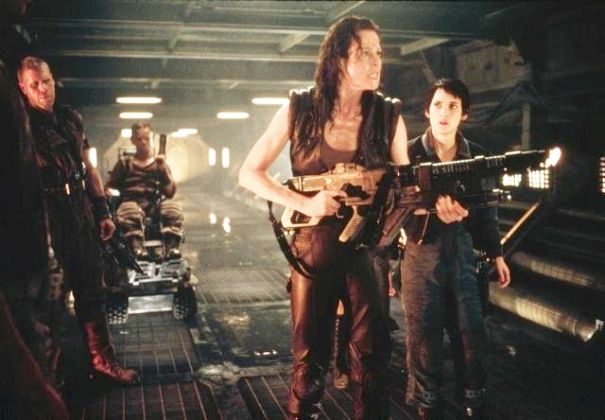
 ★★★
★★★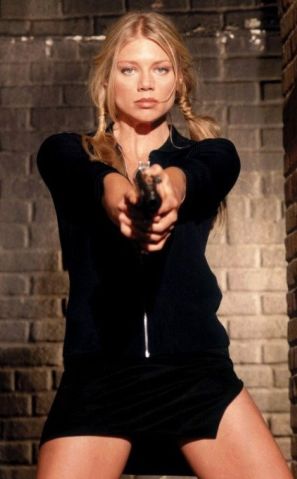 The other chance is that Section One, their version of Division, is not malicious – at least not in the same way. It’s certainly a heartless organization, which is utterly ruthless, and prepared to dispose of anyone who may interfere with their actions, but it’s more an awareness that when you’re dealing with terrorists, organized crime or other threats to the country and world, you can’t be unwilling to get your hands dirty. It leads to a significant bleaker overall tone, and is amazingly prophetic, given this was screened well before 9/11 led to this attitude become a necessary part of national security. Early on, it’s established that you can never trust Section heads Operation (Glazer) and Madeleine (Watson, who was also part of the remake, playing Senator Pierce – her given name there was also Madeleine), to the extent that their deceit becomes almost a cliché.
The other chance is that Section One, their version of Division, is not malicious – at least not in the same way. It’s certainly a heartless organization, which is utterly ruthless, and prepared to dispose of anyone who may interfere with their actions, but it’s more an awareness that when you’re dealing with terrorists, organized crime or other threats to the country and world, you can’t be unwilling to get your hands dirty. It leads to a significant bleaker overall tone, and is amazingly prophetic, given this was screened well before 9/11 led to this attitude become a necessary part of national security. Early on, it’s established that you can never trust Section heads Operation (Glazer) and Madeleine (Watson, who was also part of the remake, playing Senator Pierce – her given name there was also Madeleine), to the extent that their deceit becomes almost a cliché. On the other hand, apart from the lack of action, the angle I liked least was the relationship between Nikita and her handler/fellow agent, Michael (Dupuis). I’ll come right out and say it: I hate ‘shippers, and storylines that pander to them are nothing more than an irritant to me, especially in shows which I watch for action, where they do little except interfere with the good stuff, in my humble opinion. [We’ve seen this in the new incarnation, where the show has disintegrated from one of the best shows on TV, into little more than Mr. and Mrs. Smith And Friends.] I’m definitely a “noromo”: If I wanted unresolved sexual tension and relationship nonsense, I’d watch daytime soap operas. Right from the first time Nikita and Michael meet, it’s doe-eyed heaven, even though there is obviously little or no honesty, trust and anything else on which a genuine relationship could ever be founded.
On the other hand, apart from the lack of action, the angle I liked least was the relationship between Nikita and her handler/fellow agent, Michael (Dupuis). I’ll come right out and say it: I hate ‘shippers, and storylines that pander to them are nothing more than an irritant to me, especially in shows which I watch for action, where they do little except interfere with the good stuff, in my humble opinion. [We’ve seen this in the new incarnation, where the show has disintegrated from one of the best shows on TV, into little more than Mr. and Mrs. Smith And Friends.] I’m definitely a “noromo”: If I wanted unresolved sexual tension and relationship nonsense, I’d watch daytime soap operas. Right from the first time Nikita and Michael meet, it’s doe-eyed heaven, even though there is obviously little or no honesty, trust and anything else on which a genuine relationship could ever be founded.